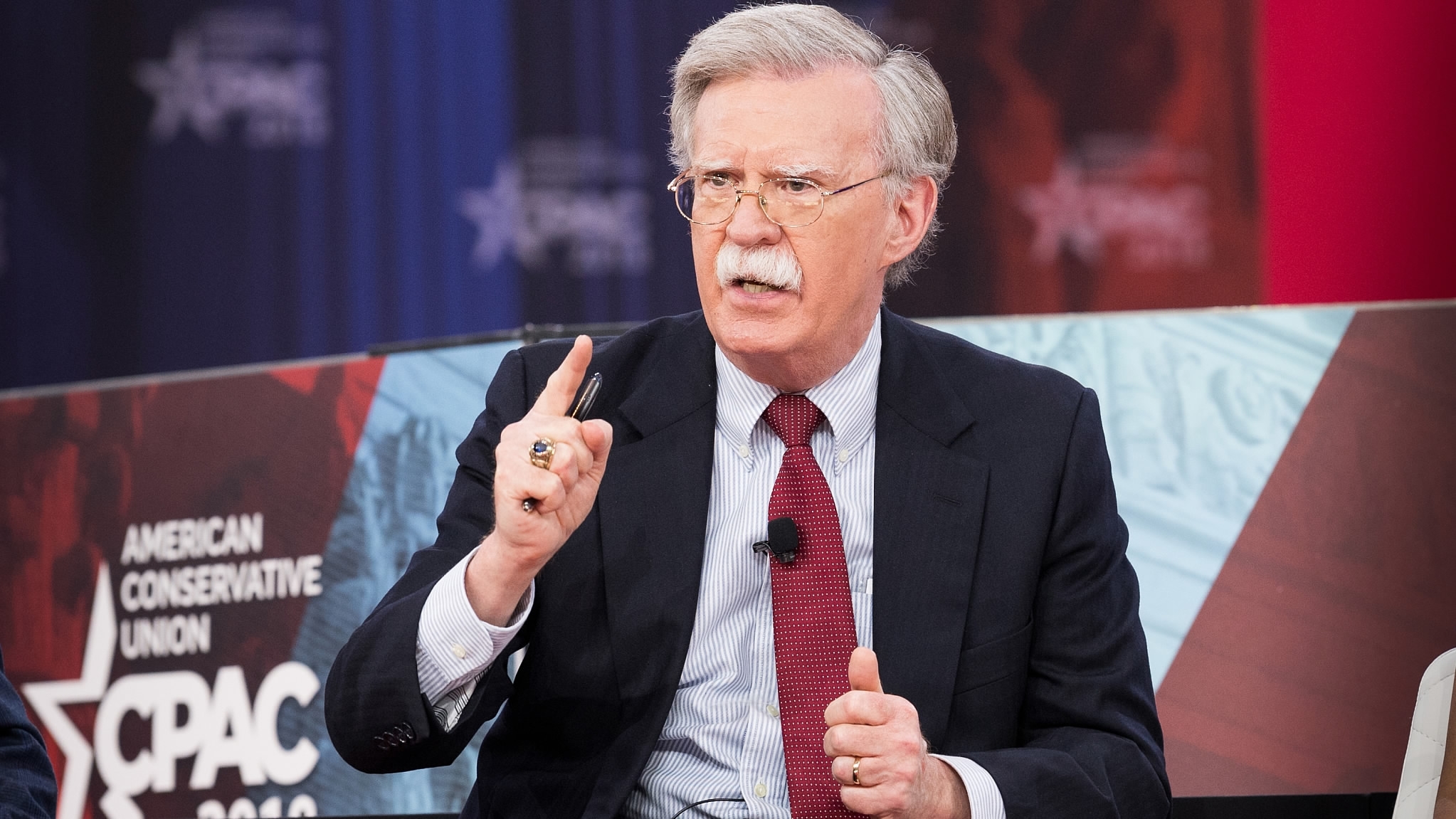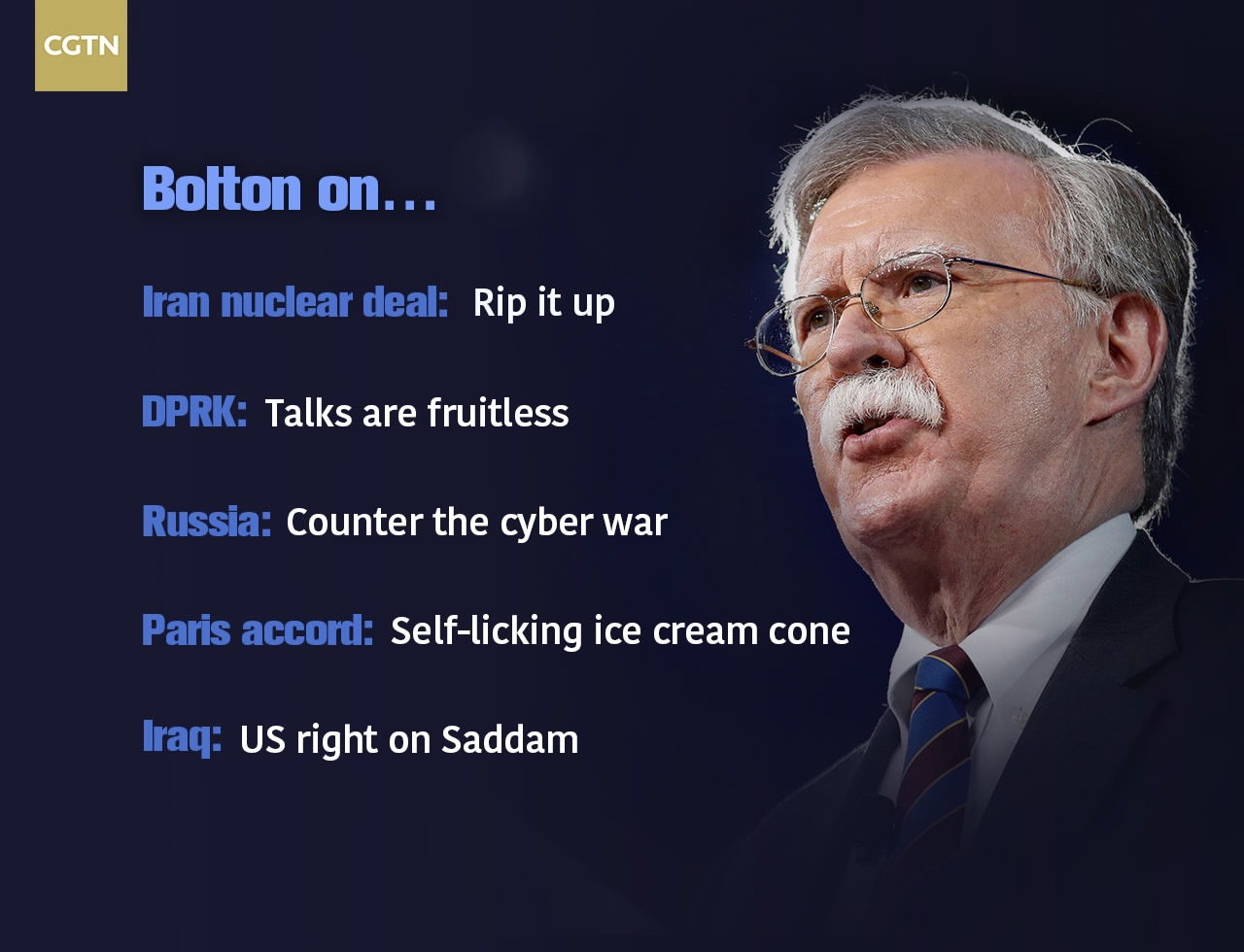
Politics
13:00, 23-Mar-2018
What does hardliner Bolton mean for US foreign policy?
By John Goodrich

The Trump administration signaled a hardening of policy towards Iran, Russia, and the Korean Peninsula on Thursday evening with the appointment of John Bolton as national security adviser.
Bolton, the US ambassador to the United Nations during the Iraq War, is the second major change in the Trump top team in little over a week following the nomination of Mike Pompeo as secretary of state.
Read more: Bolton replaces McMaster
Read more: Is Pompeo in tune with Trump?
Infographic: Who has left the White House?
Both Bolton and Pompeo have expressed more hawkish views than their predecessors – H.R. McMaster and Rex Tillerson – and the new national security adviser is expected to be a controversial pick given his bellicose reputation and strong support for US intervention in Iraq.
A source told CNN that Bolton had promised Trump “he wouldn’t start any wars.” Importantly, the role of national security adviser does not require Senate confirmation.

The long-time Fox News contributor has taken a hardline on the big foreign policy issues on-air and on Twitter, repeatedly praising Trump’s “peace through strength” approach.
Bolton on...
Iran nuclear deal
Bolton has argued not only that the Iran nuclear deal should be scrapped, but also that the US should directly attack Tehran’s nuclear facilities and support opposition forces with the aim of a regime change. He has also linked the weapons programs of Tehran and Pyongyang.

Twitter Screenshot
Twitter Screenshot
His thinking on the Iran nuclear deal is in tune with Trump's, although he has gone further by saying that it should not be renegotiated. He is also in line with Pompeo, a long-time Iran hawk. The only remaining supporter of the deal in the high ranks of the administration is Defense Secretary Jim Mattis.
Korean Peninsula
Bolton has taken a strident approach to the Democratic People’s Republic of Korea (DPRK), tweeting in February that talks “would be fruitless” and “given the gaps in US intelligence… we shout not wait” to take military action. Pompeo has also spoken about military options in the past and as CIA chief said he was working to ensure the president had "the full sweep of possibilities" available.

Twitter Screenshot
Twitter Screenshot
Trump has tentatively agreed to meet with DPRK leader Kim Jong Un, while insisting sanctions remain in place and having previously floated military options. The future of that meeting appears in greater doubt following the appointments of Bolton and Pompeo.
Russia
Bolton has taken a hard line on Russia. He has called for wider, more painful and less targeted sanctions on Moscow and directly accused it of responsibility for the poisoning of a former Russian spy in the UK on March 4. He has also called on the US to strengthen allies in Europe through NATO to counter “the cyber war that Russia is engaging.” In a 2017 opinion piece in the Sydney Herald, Bolton accused Vladimir Putin of lying to Trump’s face about election meddling and cautioned against negotiations.

Twitter Screenshot
Twitter Screenshot
Pompeo and Bolton have both taken different approaches to Trump on Russia, with the president avoiding direct criticisms of Moscow and congratulating Vladimir Putin on his reelection against the advice of his staff. There has been speculation, denied by the White House, that a leak over the congratulatory phone call contributed to McMaster’s departure.
Middle East
Bolton was one of the leading proponents of the US invasion of Iraq and continues to defend it, saying that although mistakes were made in the aftermath removing Saddam Hussein from power was the right thing to do. He has previously dismissed hopes for a two-state solution for Israel and Palestine, and welcomed Trump’s recognition of Jerusalem as Israel’s capital.

Twitter Screenshot
Twitter Screenshot
Trump claims to have always been opposed to US involvement in Iraq and made it a dividing line in the 2016 presidential election. Earlier in March, Trump said US involvement in Iraq was “the single worst decision ever made.”
Paris climate deal
Bolton strongly praised Trump’s June 2017 announcement that he planned to take the US out of the Paris climate deal. He described the Paris agreement as “a self-licking ice cream cone” and said its overall impact on the climate “by any reputable scientific analysis is zero.” Both Bolton and Pompeo are in tune with Trump on climate change.
Multilateralism
Bolton has not only criticized the Iran and Paris deals, but also shown a general wariness towards multilateral institutions and international treaties.
The former US ambassador to the United Nations once said of the 38-story UN headquarters in New York, “if it lost 10 stories, it wouldn’t make a bit of difference.” The Trump move away from multilateralism is in line with Bolton’s past comments.
Who’s next?
Bolton is the latest regular TV pundit to take a seat at Trump’s top table, and his criticisms of Obama era policy have probably done much to endear him to the president. He has also strongly praised Vice President Mike Pence, going so far as to suggest the vice president should take on a greater role in international relations.

Twitter Screenshot
Twitter Screenshot
The departure of H.R. McMaster was long expected, although the timing was a surprise, and speculation has already turned to who will be next out the door.
Veteran Affairs Secretary David Shulkin and Housing and Urban Development Secretary Ben Carson are both under investigation for use of expenses, while Chief of Staff John Kelly and Attorney General Jeff Sessions have been under pressure.
For now, the attention is on the impact Bolton’s appointment will likely make. The New York Times on Thursday quoted a note from The Eurasia Group to clients, warning that US foreign policy was now “America First on Steroids.”

SITEMAP
Copyright © 2018 CGTN. Beijing ICP prepared NO.16065310-3
Copyright © 2018 CGTN. Beijing ICP prepared NO.16065310-3